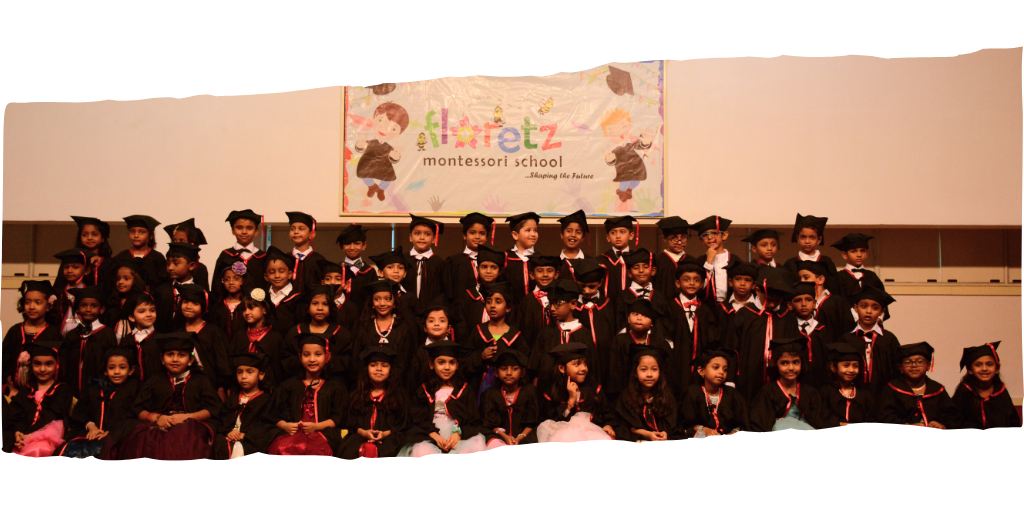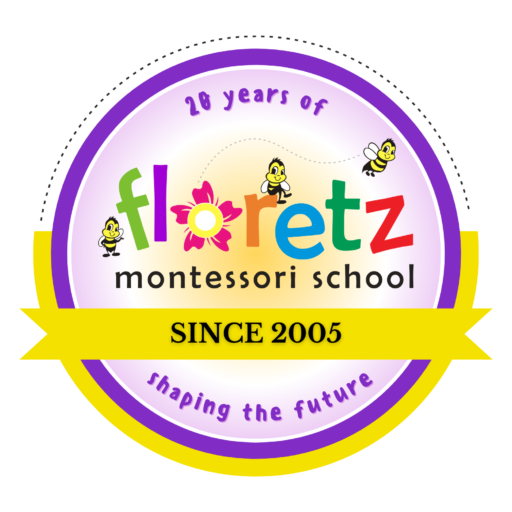PROGRAMS
not of imposing ourselves upon him.” ~ Dr. Maria Montessori.
The Montessori approach is child-centric and systematically progressive in line
with the child’s development.

Toddler Montessori
Age 2 to 2.5 years
Our Montessori-based Toddler curriculum enhances concentration, coordination, language skills, responsibility, and respect, ensuring a smooth transition to the Primary Montessori environment. Each activity is custom-tailored to meet toddlers’ developmental needs, fostering a stimulating environment where their minds absorb new information like a sponge. At Floretz, we create a nurturing space that encourages exploration and discovery, making learning a joyful experience.



Our Montessori classrooms cater to children aged 2.5 to 6 years, offering a unique, mixed-age environment that promotes peer learning and social development. Each classroom accommodates up to 40 children, guided by two trained teachers and an assistant. Our classrooms are thoughtfully designed with child-sized furniture and materials, easily accessible on low shelves to encourage independence and self-directed learning. Teachers introduce activities, which children can then choose to explore based on their interests.

Primary Montessori
Age 2.5 to 6 years

Our classrooms are equipped with a wide variety of materials to stimulate curiosity and learning across different domains:
child’s development in a supportive, engaging environment.
Parents Involvement
Parents as primary educators lay foundations for their children’s emotional, physical and cognitive developments. The decision on how children are nurtured and educated has a great impact on their later interactions with the world around them. To facilitate parents’ knowledge about how their children learn best, we encourage active parental involvement in activities such as observations, parent-teacher meetings, and all other school events. This does not only keep parents updated on their children’s endeavours and achievements, but also creates a connection between home and school that reinforces their learning experiences.
Tips to take home Montessori

This can be done by providing a clean and organised environment, and designating child-friendly areas to allow easy access to things without help.

Entrust your children to do things on their own. Use encouragement and not rewards to praise a positive behaviour.

It is no surprise that children mirror their parents’ behaviours. Subtly make them aware of their mistakes and model how it should be done.

We cannot satisfy children’s innate curiosity through screens. Cultivate their sensory experiences by taking them outdoors.






